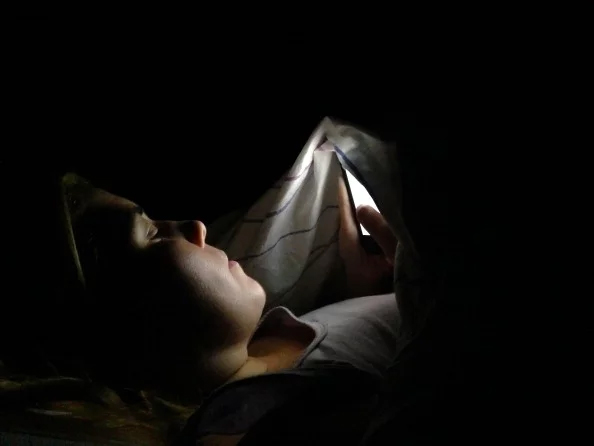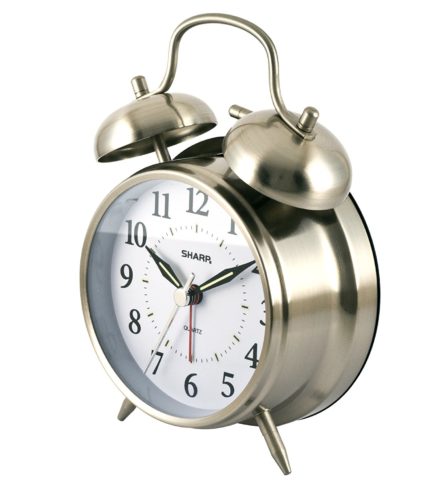1/ Some factors leading to reduced sleep time for teenagers
Students fall asleep later as they enter adolescence, shifting on average from 10pm to midnight. This shift occurs because the overall body temperature of children at this age begins to lower, thus “favoring the arrival of sleep at a later time.” (2)
 School and extra-curricular constraints play a role in this shift in bedtime, too. As students get older, personal workload associated with the stress of exams and admissions to university increases. Similarly, extra-curricular activities add to an already very busy schedule and can make for some late nights. A late night will be inevitably interrupted by an early wake time to start classes.
School and extra-curricular constraints play a role in this shift in bedtime, too. As students get older, personal workload associated with the stress of exams and admissions to university increases. Similarly, extra-curricular activities add to an already very busy schedule and can make for some late nights. A late night will be inevitably interrupted by an early wake time to start classes.
Teenage social life and newfound independence, along with an adolescent’s own need for privacy, can lead to later wake up times on the weekend. An irregular sleep schedule can increase fatigue. Sleeping and taking naps, however restorative, can also prevent students from getting to bed early on Sunday, a must to start the week off right.
New technologies have a significant impact on the sleep time of our young people. In a 2013-14 study conducted by the Morphée Network with schoolchildren, nearly  34% keep their mobile phones switched on at night, 15% send text messages, and 11% connect to social networks, losing an average of one hour of sleep time each night. Dr. Sylvie Royant-Parola, president of the Morphée Network, explains that the bright light from these screens mimics daylight, “giving the impression to our internal clock that night has not yet begun, and preventing the brain from launching sleep signals. The longer the time in use, the longer this effect is, and the more the sleep is delayed!” (3)
34% keep their mobile phones switched on at night, 15% send text messages, and 11% connect to social networks, losing an average of one hour of sleep time each night. Dr. Sylvie Royant-Parola, president of the Morphée Network, explains that the bright light from these screens mimics daylight, “giving the impression to our internal clock that night has not yet begun, and preventing the brain from launching sleep signals. The longer the time in use, the longer this effect is, and the more the sleep is delayed!” (3)
2/ How can teenagers sleep better?
First, by sensitizing them to the importance of sleep. Students do not always see sleep as a necessity and may even regard it as a waste of time. However, the impact of sleep deprivation on their health is proven:
- Physical repercussions include: decreased immune defenses, limitation of growth hormone production, increased risk of obesity and diabetes.
- Psychological effects include: fatigue, irritability, attention deficit, poor memorization, and depression.
During weekends and holidays, it is important not to go to bed too late or sleep in too late (for example waking up past 10 am). If you are traveling, it is recommended try to get back on a regular sleep schedule a few days before going back to school.
In terms of diet and lifestyle the consumption of caffeine (tea, coffee, Coca Cola …) or energy drinks ( i,e, Redbull) is not advised, especially in the afternoon and in the evening. Late dinners and sports practices are also no advised, as they delay the time of falling asleep.
 A teenager’s room must be conducive to sleep, that is to say calm, dark, warm but temperate. If possible, it should be free of electronic screens, from a late hour if necessary. Students should consider an alarm other than a cellphone to wake up in the morning.
A teenager’s room must be conducive to sleep, that is to say calm, dark, warm but temperate. If possible, it should be free of electronic screens, from a late hour if necessary. Students should consider an alarm other than a cellphone to wake up in the morning.
No one needs to spend 22 hours on her or his computer doing homework. Learning how to plan out homework daily and weekly is essential. Setting a set routine for homework when coming home from school and avoiding procrastination until dinnertime can go a long way to reduce the nighttime accumulation of work and related stress. Discussing homework with teachers to help manage their time is recommended.
The French national “Day of Sleep” is on March 17. Discussions on the subject will take place in the advisory from March 13 to 21, and resources on sleep are available to students at the CDI. Last, but not least, the eye masks very generously offered to students from the ninth to 12th grade by the APL are opportunities to open the dialogue on the importance of sleep with your children.
About the Author :
Professeure agrégée de Lettres Modernes et titulaire d’un Master professionnel de Psychologie clinique, Nathalie Anton a été membre pendant trois ans d’une équipe en charge de prévenir la violence en milieu scolaire dans l’académie de Paris. Elle est aussi l’auteur de l’ouvrage L’Art d’enseigner, paru aux éditions Ixelles en août 2012. Quand elle n’est pas en classe, Nathalie aime courir à Central Park et sillonner la ville à vélo l’été et se réchauffer dans les salles de spectacles l’hiver.


